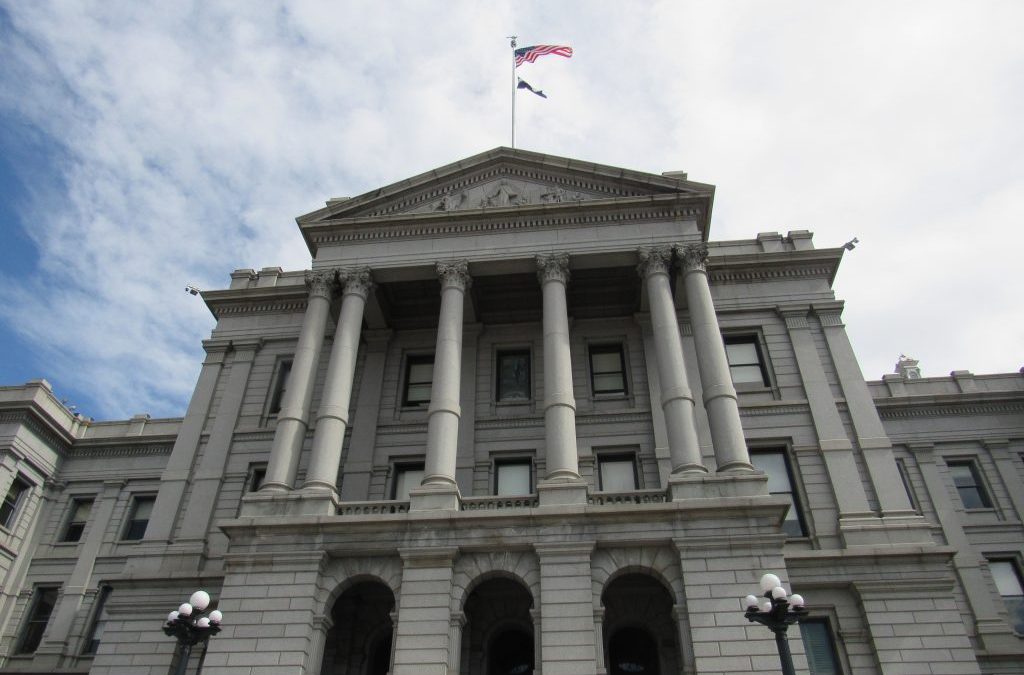Water districts in Colorado are closely monitoring the progress of a high-profile property tax relief measure that voters will weigh in on Nov. 7.
Proposition HH, as it is known, was referred to the fall ballot by lawmakers last spring.
Written partially in response to soaring property tax bills statewide, it would reduce the property tax rate slightly, from 6.76% to 6.7%, cap the rate of future increases, and exempt a portion of a home’s value when tax bills are calculated. But it would also allow state government to keep millions of dollars that would otherwise be refunded to taxpayers under Colorado’s government-limiting TABOR Amendment. It would use a portion of the money it keeps to help water districts, fire districts and schools impacted by the tax cut.
Dozens of water districts across the state, and most local and county governments, rely on property taxes to help fund operations. Many are worried that the ballot measure would harm their budgets, even with the potential for state aid to offset any reductions in revenue.
The Glenwood Springs-based Colorado River District board voted to formally oppose the measure Sept. 21, saying it would hurt revenue and cause too much uncertainty for the district’s future funding.
The district is responsible for managing the Colorado River within state boundaries and represents 15 West Slope counties. It has an annual budget of $10 million, 98% of which is derived from property tax revenues, according to General Manager Andy Mueller.
In 2020 the river district won a rare victory when its voters approved a property tax increase to help it manage the drought-stressed Colorado River.
“Our board is very concerned,” Mueller said, in part because of potential budget cuts and because it doesn’t want a statewide decision to limit property taxes previously approved by local voters.
He also said the board is concerned the measure will hamper the district’s ability to respond to the challenges of climate change and the accompanying increased pressure on water supplies.
Water districts on the Front Range are also monitoring the ballot measure. Brad Wind is manager of Northern Water, one of the largest agencies in the state. Northern operates the Colorado-Big Thompson Project for the federal Bureau of Reclamation. It pipes water from the headwaters of the Upper Colorado River to the Front Range, serving more than 1 million residents and helping irrigate hundreds of thousands of acres of farm land.
Northern relies on property taxes for roughly half of its annual revenue, Wind said, but the agency’s board has not taken a position on Proposition HH.
“Our district goes all the way to Nebraska, and it is a mix of folks with a lot of different views on government spending,” Wind said. “Our board doesn’t have a desire to get in the middle of that. Our approach is that if it passes and we have to take a haircut [on our annual revenues], we will.”
Backed by democratic Gov. Jared Polis, as well as the Colorado Education Association and the League of Women Voters, proponents say the ballot measure will protect property owners from soaring tax bills and boost education funding, an area where Colorado consistently ranks among the lowest in the nation for spending.
But it is encountering stiff opposition from business groups and others, whose concerns center on the rise in state spending as well as the future cap on local property tax revenues.
Neither the No on HH campaign, nor its counterpart, Yes on HH, responded to requests for comment.
Political pollster Floyd Ciruli said it’s not clear how the ballot measure will fare Nov. 7. But he said it likely faces an uphill battle to win approval.
“It got off to a bad start in the legislature because there wasn’t a clear consensus on what to do ,” he said. “Proponents are going to need a really good campaign. This is complicated.”
Fresh Water News is an independent, nonpartisan news initiative of Water Education Colorado. WEco is funded by multiple donors. Our editorial policy and donor list can be viewed at wateredco.org.


 Print
Print